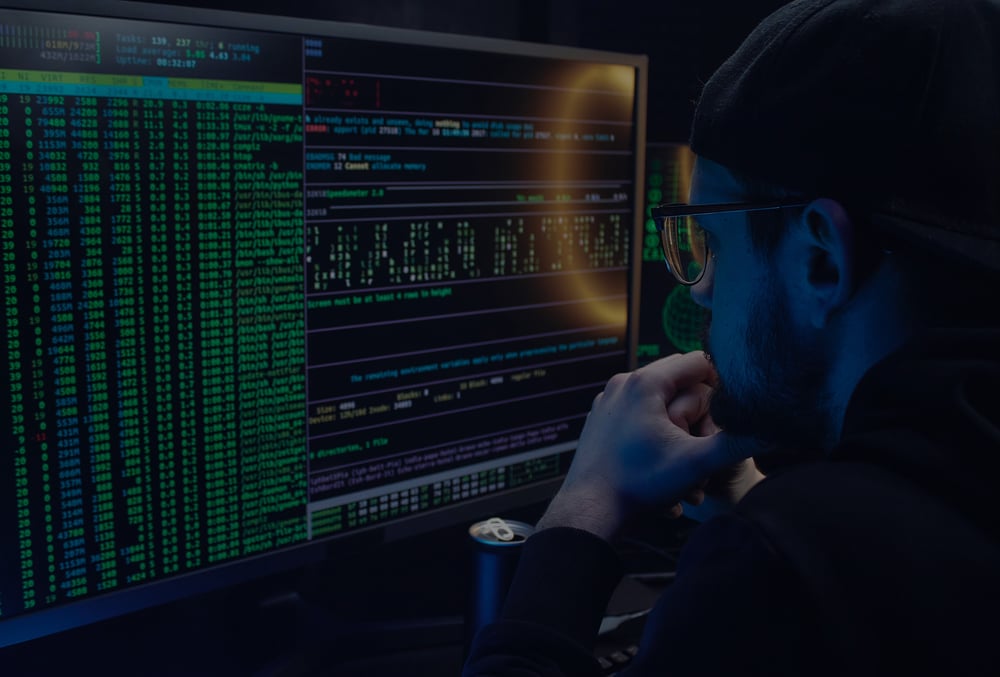Introduction
The Cybersecurity field of Digital Forensics is exciting and rapidly evolving which plays a critical role in investigations. Digital Forensics Investigators must be highly skilled professionals to extract, analyze, and interpret digital evidence to uncover insights, solve crimes, and protect organizations from cyber threats. In this comprehensive blog post, we will dig into the field of digital forensics, providing you with a step-by-step roadmap to become an expert in this fascinating field:
What is Digital Forensics?
Digital Forensics is one of the important fields of Cybersecurity to protect companies and it is a branch of forensics science, its main purpose is to collect and reveal the evidence of digital crimes and find the loophole or the cause of the attack's success, Digital forensics refers to the process of collecting, preserving, analyzing, and presenting digital evidence in a manner that is admissible in a court of law or relevant investigative proceedings. It involves the application of scientific techniques and methodologies to investigate digital devices, networks, and storage media to identify, extract, and interpret evidence related to a cybercrime or security incident. Digital forensics includes the investigation of various digital artifacts, such as files, emails, documents, network traffic, log files, and system metadata.
Digital forensics could be processed in all digital devices, including computers, mobile phones, tablets, servers, IoT devices, and cloud-based systems...etc. It also covers different areas of digital activity, such as operating systems, file systems, databases, networks, and online communication platforms. Digital forensics involves the application of both technical expertise and legal knowledge and skills to ensure the integrity and admissibility of the evidence collected.
Key Principles and Objectives of Digital Forensics Investigations:
- Integrity: Maintaining the integrity of digital evidence is Important. Every step of the investigation process should adhere to strict protocols and procedures to ensure that evidence remains unaltered and tamper-proof. This involves employing proper chain of custody practices, using validated tools and techniques, and documenting all actions taken during the investigation.
- Accuracy: Digital forensics investigations aim to obtain accurate and reliable findings. Investigators must employ scientifically sound methodologies, validate their tools and techniques, and cross-reference their findings with multiple sources to ensure the accuracy and credibility of their conclusions.
- Completeness: Investigations should be comprehensive in collecting and analyzing digital evidence. This could be like identifying all relevant sources of evidence, such as devices, storage media, and network logs, and conducting a careful examination of each piece of evidence to uncover the full extent of an incident or crime.
- Relevance: Digital forensics investigations focus on extracting evidence that is directly relevant to the case at hand. Investigators must possess the ability to identify and prioritize the most relevant evidence to build a strong case or support investigative efforts effectively.
- Confidentiality: Maintaining the confidentiality of the investigation and the privacy of individuals involved is crucial. Investigators must handle sensitive information super carefully, ensuring appropriate security measures are in place to maintain the integrity and confidentiality of the evidence collected.
Application Areas and Importance in Modern-Day Scenarios:
Digital forensics has become increasingly important in various domains due to the increase in the use and need for digital technologies and the rise in cyber threats. Some key application areas include:
- Cyber Crime Investigations: Digital forensics plays an important role in investigating cyber crimes such as hacking, data breaches, financial fraud, PPC fraud, intellectual property theft, and online harassment. It helps identify perpetrators, trace their activities, and gather evidence to support legal actions.
- Incident Response and Data Breach Investigation: When organizations experience security incidents or data breaches, digital forensics experts are employed to identify the root cause, assess the impact, contain the incident, and gather evidence for remediation and potential legal proceedings.
- Law Enforcement and Legal Proceedings: Digital evidence is often crucial in criminal investigations, prosecutions, and court proceedings. Digital forensics helps uncover evidence related to cyber crimes, terrorism, child exploitation, and other criminal activities and helps law enforcement agencies and legal professionals in building strong cases.
- Corporate Investigations and Internal Audits: Digital forensics assists organizations in conducting internal investigations related to employee misconduct, intellectual property theft, compliance violations, and unauthorized access incidents. It helps organizations gather evidence, assess damages, and take appropriate actions.
- Civil Litigation and Dispute Resolution: Digital forensics investigators are employed in civil cases involving intellectual property disputes, contract breaches, employment law violations, and other legal disputes where digital evidence is necessary to establish facts, uncover complex digital transactions, or disprove false claims.

How to Become a Digital Forensics Expert?
To become a digital forensics expert, you must follow a well-defined roadmap that combines technical knowledge, practical experience, and continuous learning. In this XEye Academy detailed guide, we will outline the essential steps on the journey to becoming a proficient digital forensics expert from scratch:
- Education and Training:
- Gain a solid foundation in technology and information security concepts by either pursuing a degree in computer science, cybersecurity, or a related field or by learning online from many sources or having a very knowledgeable and skilled instructor.
- Seek out advanced training programs or certifications that focus on digital forensics principles and techniques. These programs provide deep knowledge and practical skills necessary for investigations.
- Technical Skills Development:
- Master computer systems and architecture, including hardware components, operating systems, file systems, and networking protocols, this will enhance your skills and ability later for the investigation.
- Practice programming languages, scripting, and automation to enhance your ability to analyze and process digital evidence effectively and also learn to develop the tools that will help you in the investigation.
- Gain knowledge and skills in data recovery techniques, forensic imaging, and evidence acquisition methods.
- Practical Experience and Hands-on Training:
- Join training programs that offer real-world simulating labs and also seek internships, and entry-level positions in cybersecurity, or law enforcement agencies. This allows you to gain practical experience, understand real-world investigations, and work with seasoned professionals.
- Although Digital Forensics could be self-studied, participating in simulated scenarios with professional training programs will sharpen your skills and learn from practical case studies that can't do on your own.
- Mentorship and Professional Guidance:
- Establish relationships with experienced digital forensics experts who can provide mentorship, guidance, and valuable insights into the field.
- Join professional organizations and attend industry conferences, workshops, and seminars to network with experts and stay updated on the latest trends and techniques.
Conclusion:
The importance of digital forensics cannot be denied. It enables the identification, preservation, and analysis of digital evidence, helps in the prevention and detection of cyber crimes, ensures justice, and strengthens the integrity of digital systems and networks, by following this roadmap provided by XEye Academy, the digital forensics students can acquire the necessary skills, knowledge, and practical experience to outstanding in this important field with certified and highly experienced trainers and advanced training programs, XEye Academy provides training programs with certified experienced and skilled trainers along with the tools and advanced dedicated simulating labs to help students become an experienced and certified Digital Forensics professionals. Visit our Digital Forensics live training landing page to learn more about what you can learn through this upcoming live training.





